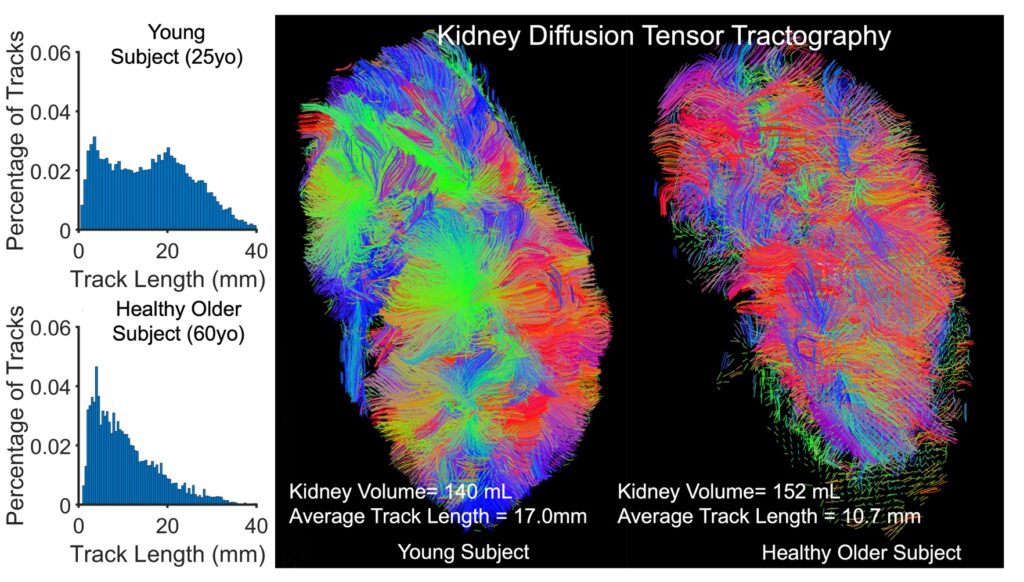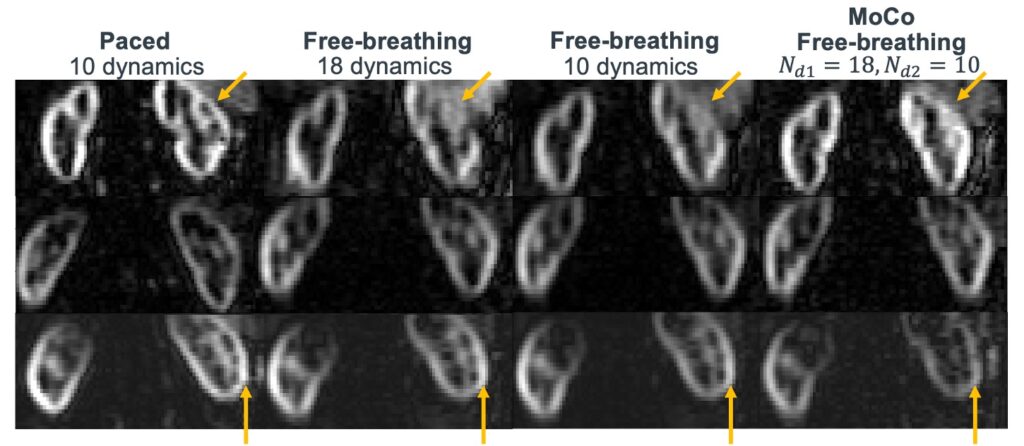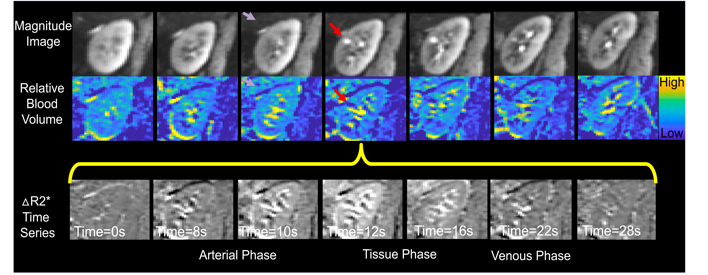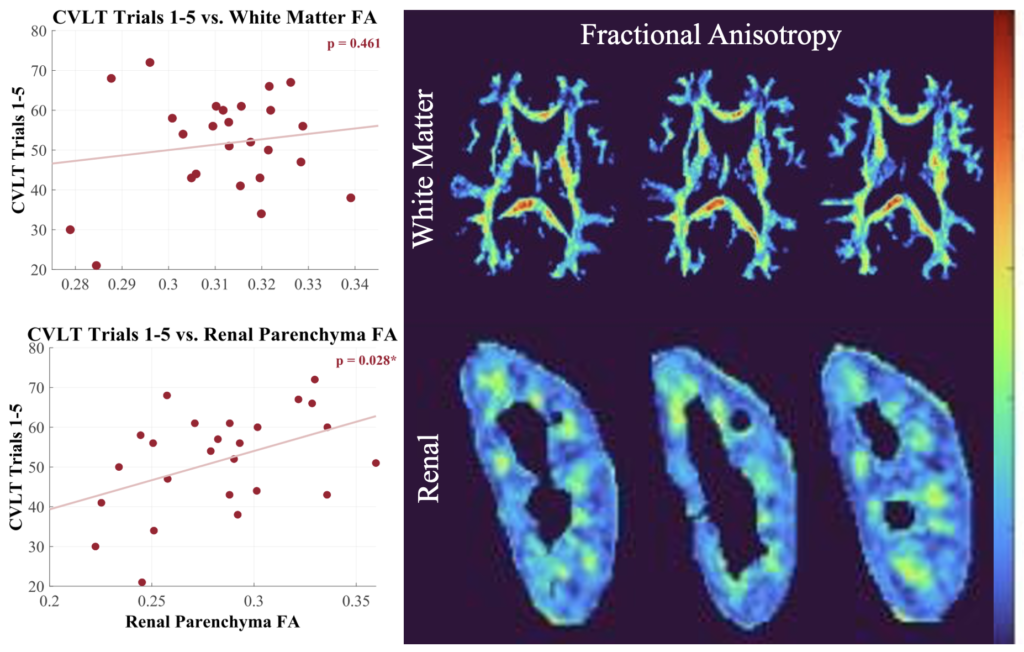Vision
Our research group aims to improve the lives of humans via the development and use of safe imaging technology. This work primarily centers on the advancement of quantitative, MRI based biomarkers of blood flow, oxygenation and other physical parameters. We use our tools to study (patho)physiology, expand clinical imaging and make imaging safer and more accessible. We image human subjects with an emphasis on disenfranchised populations including children, Black/Latino Americans, older adults and other marginalized populations. We collaborate broadly, so be sure to contact us if these research areas interest you!
Ongoing and Funded Project Areas
Robust Kidney MRI
Kidney disease is an under-appreciated cause of cardiovascular disease, morbidity and early death and is rarely assessed with imaging. This project aims to develop and improve safe, non-contrast kidney function mapping using MRI. Techniques include motion tolerant arterial spin labeling perfusion, diffusion MRI and contrast-free dynamic susceptibility contrast imaging. In collaboration with the Tamir Group at the University of Texas at Austin.



Blood Clot Mechanics in Sickle Cell Disease
Sickle cell disease is a blood disorder characterized by the production of abnormal red blood cells that primarily effects people of African descent. This project aims to identify fundamental biomechanical properties of blood clots in effort to understand, prevent and treat adverse events including pulmonary embolism, ischemia and pain. In collaboration with the Rausch Group at the University of Texas at Austin and Alicia Chang of the Blood and Cancer Center at the Ascension Seton Dell Children’s Hospital.

Kidneys and Cognition
Cognitive impairment caused by Alzheimer’s Disease and other vascular dementias has been linked to kidney disease however there is limited understanding of the causal mechanism. This project aims to use advanced structural and functional imaging and ambulatory monitoring of the heart, brain and kidneys to elucidate early reno-neurovascular mechanisms of cognitive impairment, particularly in racial/ethnic minorities due to higher prevalence. Work with the Clark Group at the University of Texas at Austin.

Support
We are proudly supported by NIH 5R01EB033916, “Robust, Contrast-Free Functional Renal MRI”